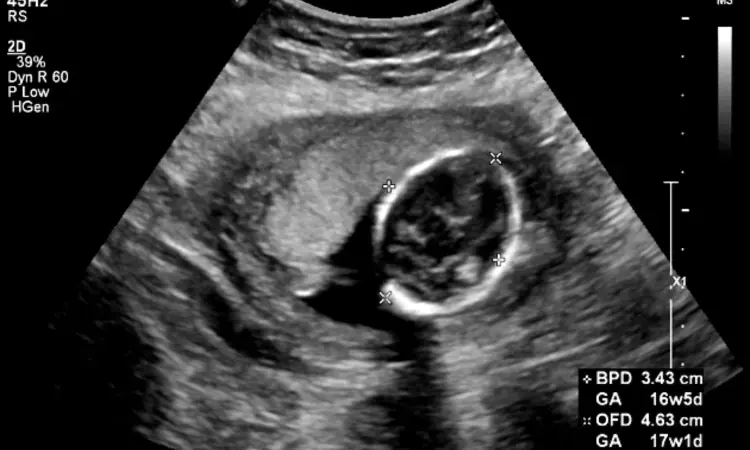- Home
- Medical news & Guidelines
- Anesthesiology
- Cardiology and CTVS
- Critical Care
- Dentistry
- Dermatology
- Diabetes and Endocrinology
- ENT
- Gastroenterology
- Medicine
- Nephrology
- Neurology
- Obstretics-Gynaecology
- Oncology
- Ophthalmology
- Orthopaedics
- Pediatrics-Neonatology
- Psychiatry
- Pulmonology
- Radiology
- Surgery
- Urology
- Laboratory Medicine
- Diet
- Nursing
- Paramedical
- Physiotherapy
- Health news
- Fact Check
- Bone Health Fact Check
- Brain Health Fact Check
- Cancer Related Fact Check
- Child Care Fact Check
- Dental and oral health fact check
- Diabetes and metabolic health fact check
- Diet and Nutrition Fact Check
- Eye and ENT Care Fact Check
- Fitness fact check
- Gut health fact check
- Heart health fact check
- Kidney health fact check
- Medical education fact check
- Men's health fact check
- Respiratory fact check
- Skin and hair care fact check
- Vaccine and Immunization fact check
- Women's health fact check
- AYUSH
- State News
- Andaman and Nicobar Islands
- Andhra Pradesh
- Arunachal Pradesh
- Assam
- Bihar
- Chandigarh
- Chattisgarh
- Dadra and Nagar Haveli
- Daman and Diu
- Delhi
- Goa
- Gujarat
- Haryana
- Himachal Pradesh
- Jammu & Kashmir
- Jharkhand
- Karnataka
- Kerala
- Ladakh
- Lakshadweep
- Madhya Pradesh
- Maharashtra
- Manipur
- Meghalaya
- Mizoram
- Nagaland
- Odisha
- Puducherry
- Punjab
- Rajasthan
- Sikkim
- Tamil Nadu
- Telangana
- Tripura
- Uttar Pradesh
- Uttrakhand
- West Bengal
- Medical Education
- Industry
AI-based analysis of ultrasound images and videos predicts gestational age more accurately: Study

USA: Artificial intelligence (AI) models hold the potential to empower trained ultrasonography operators to determine gestational age (GA) with higher accuracy compared to conventional fetal biometry techniques, a recent study in JAMA Network Open has found.
Fetal ultrasonography is critical for confirming gestational age, and accurate assessment of GA is vital for providing proper care throughout pregnancy and identifying complications, including fetal growth disorders. Derivation of gestational age from manual fetal biometry measurements (i.e., abdomen, head, and femur) is time-consuming and operator dependent.
Considering the above, Chace Lee, Google Health, Palo Alto, California, and colleagues aimed to develop artificial intelligence models to estimate GA with higher reliability and accuracy, leveraging standard biometry images and fly-to ultrasonography videos.
For improving GA estimates, the diagnostic study used AI to interpret fly-to ultrasonography videos and standard plane ultrasonography images. Fly-to ultrasonography videos are 5- to 10-second videos that can be recorded automatically as part of the standard of care before capturing a still image. They developed and validated three AI models:
- A video model using fly-to videos
- An image model using standard plane images
- An ensemble model (combining both video and image models)
The models were trained and assessed on data from the FAMLI (Fetal Age Machine Learning Initiative) cohort that comprised participants from two study sites in Lusaka, Zambia, and Chapel Hill, North Carolina (US). People aged 18 years and above, those with a viable intrauterine singleton pregnancy, and those who received antenatal care at 1 of these sites and could provide written consent were deemed eligible. They were excluded if they had known fetal or uterine abnormality or had any other conditions that would complicate interpretation or make participation unsafe.
The study led to the following findings:
- From the total cohort of 3842 participants, data calculation was done for a test set of 404 participants with a mean age of 28.8 years at enrollment.
- All models were statistically superior to standard fetal biometry–based GA estimates derived from expert sonographers' captured images.
- The ensemble model was shown to have the lowest mean absolute error versus clinical standard fetal biometry (mean [SD] difference, −1.51 days).
- All three models performed better than standard biometry by a more substantial margin on fetuses estimated to be small for their gestational age.
The study showed that the video, image, and ensemble models provide statistically superior GA estimation than clinical standard fetal biometry.
"Our models had a notable increase in relative performance over fetal biometry in the 3rd trimester and when assessing fetuses who were fetal growth restricted (FGR)," the authors wrote. "Since the models are built on data collected during routine examinations of fetal ultrasonography, they hold potential of seamless incorporation into the routine clinical workflow."
There is a high demand for sonographers who often have overuse or workplace injuries due to current scanning requirements. Additional research is required to determine whether an AI adjunct can assist sonographers, reduce scanning time, and minimize injury at the workplace.
'Our AI models hold the potential to empower trained operators for GA estimation with higher accuracy," they concluded.
Reference:
Lee C, Willis A, Chen C, et al. Development of a Machine Learning Model for Sonographic Assessment of Gestational Age. JAMA Netw Open. 2023;6(1):e2248685. doi:10.1001/jamanetworkopen.2022.48685
Dr Kamal Kant Kohli-MBBS, DTCD- a chest specialist with more than 30 years of practice and a flair for writing clinical articles, Dr Kamal Kant Kohli joined Medical Dialogues as a Chief Editor of Medical News. Besides writing articles, as an editor, he proofreads and verifies all the medical content published on Medical Dialogues including those coming from journals, studies,medical conferences,guidelines etc. Email: drkohli@medicaldialogues.in. Contact no. 011-43720751


